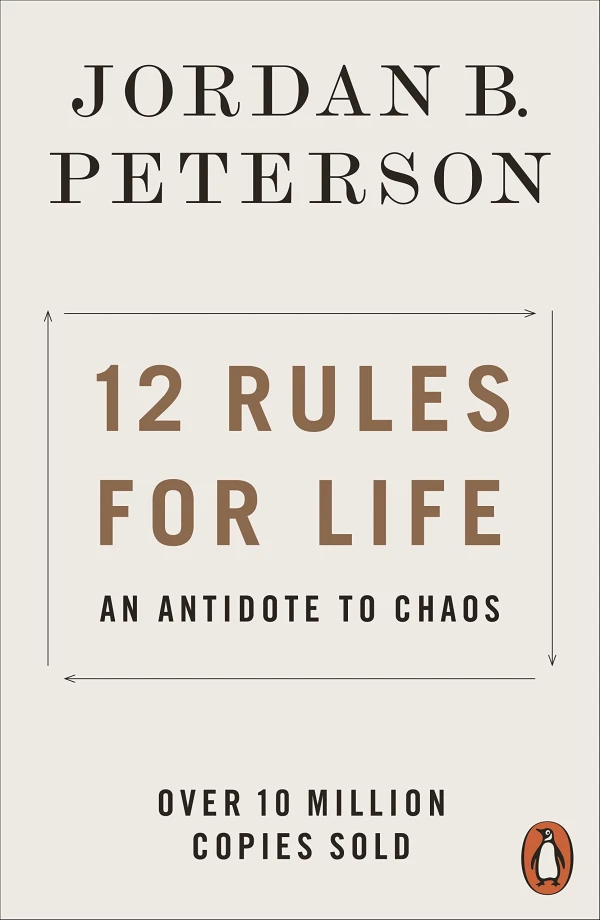Detailed Review
When I first picked up Jordan Peterson’s 12 Rules for Life: An Antidote to Chaos, I was expecting another run-of-the-mill self-help manual—perhaps a few catchy mantras and some recycled advice. What I discovered, instead, was a book that doesn’t just nudge you towards improvement, but demands a re-examination of the very foundations of your personal and professional life. Peterson’s voice is both urgent and uncompromising, guiding readers along a path that is at times uncomfortable, but ultimately transformative.
Jordan Bernt Peterson is a Canadian clinical psychologist, professor, and public intellectual. He has held teaching positions at Harvard University and the University of Toronto, where he was recognized for his research and teaching excellence, publishing over 100 scientific papers and earning an h-index of 51, placing him among the most cited clinical psychologists globally.
Executive Overview
12 Rules for Life isn’t simply a list of behaviors to adopt or habits to develop. Each rule is a philosophical anchor, crafted to help us navigate a world rife with chaos and uncertainty. Peterson marshals insights from clinical psychology, ancient mythology, and modern neuroscience, weaving them into twelve maxims such as “Stand up straight with your shoulders back” and “Pursue what is meaningful (not what is expedient).”
The rules themselves range from practical advice on self-care to more profound calls for personal responsibility and truth-telling. Rather than offering easy answers, Peterson insists that the path to mastery, whether in life or work, requires rigorous self-examination and an ongoing battle with one’s own tendencies toward disorder and complacency.
A central theme is the idea that meaning in life is found through the voluntary adoption of responsibility. Peterson argues that modern society’s focus on rights and freedoms has led to a “crisis of meaning,” and that individuals must reclaim a sense of purpose by shouldering burdens and confronting chaos.
Evaluating Impact: What Works and What Falls Short
I. Strengths
Peterson’s intellectual rigor is unmatched in the self-help genre. He draws from a rich array of sources, including Dostoyevsky, Jung, evolutionary biology, and even the dominance hierarchies of lobsters, to illustrate points about human behavior and leadership.
The psychological underpinnings of his advice are especially compelling; he demonstrates, for example, how something as simple as improving your posture can set off a cascade of positive changes in confidence, competence, and influence. His insistence on radical honesty, personal responsibility, and long-term thinking is a refreshing antidote to the platitudes that often populate business and self-improvement literature.
In interviews, Peterson critiques modern institutions, particularly universities, for what he sees as ideological orthodoxy and a stifling of open debate. He believes that the hunger for meaning and responsibility is widespread, and that the book’s popularity reflects a deep societal need for these discussions.
II. Weaknesses:
That said, the book’s assertive tone and ideological positioning can be polarizing. Peterson’s critiques of modern academia and cultural trends, though often incisive, sometimes overshadow the practical value of his rules.
Some passages veer into polemic, risking alienation of readers who are seeking actionable guidance without ideological overtones. Additionally, the writing can oscillate between crisp, clinical clarity and dense, philosophical meandering. Certain chapters feel more like university lectures than practical instruction, requiring readers to dig deep for the gems of wisdom.
Some critics argue that the book’s advice is rooted in established values and psychological principles, with little that is truly novel.
The Winning Line(s):
Peterson’s writing is studded with memorable lines, but a few stand above the rest for their impact and clarity:
“Compare yourself to who you were yesterday, not to who someone else is today.”
“Treat yourself like someone you are responsible for helping.”
“Set your house in perfect order before you criticize the world.”
These maxims distill the essence of the book: growth is an individual journey, rooted in personal accountability and meaning.
Recommendation
12 Rules for Life is not a light read. It challenges, provokes, and sometimes frustrates, but it also enlightens. I recommend it to anyone serious about personal and professional growth. If you’re willing to engage with its ideas deeply, and to wrestle with your own assumptions, this book offers transformative insights.
It’s particularly valuable for those who value intellectual challenge and are not afraid to confront uncomfortable truths. While the ideological undertones may not resonate with everyone, the overarching message, order your life, pursue truth, and take responsibility, rings universally true. For those determined to rise above mediocrity, Peterson’s rules are a powerful place to start.
Final Verdict: 4.5/5
Jordan Peterson’s 12 Rules for Life is a rare blend of intellectual depth and practical wisdom, offering both challenge and clarity in an age often marked by confusion. While its assertive tone and ideological edges may not suit every reader, the book’s core message makes it a transformative read. I highly recommend it for anyone ready to confront life’s chaos with courage and purpose.


